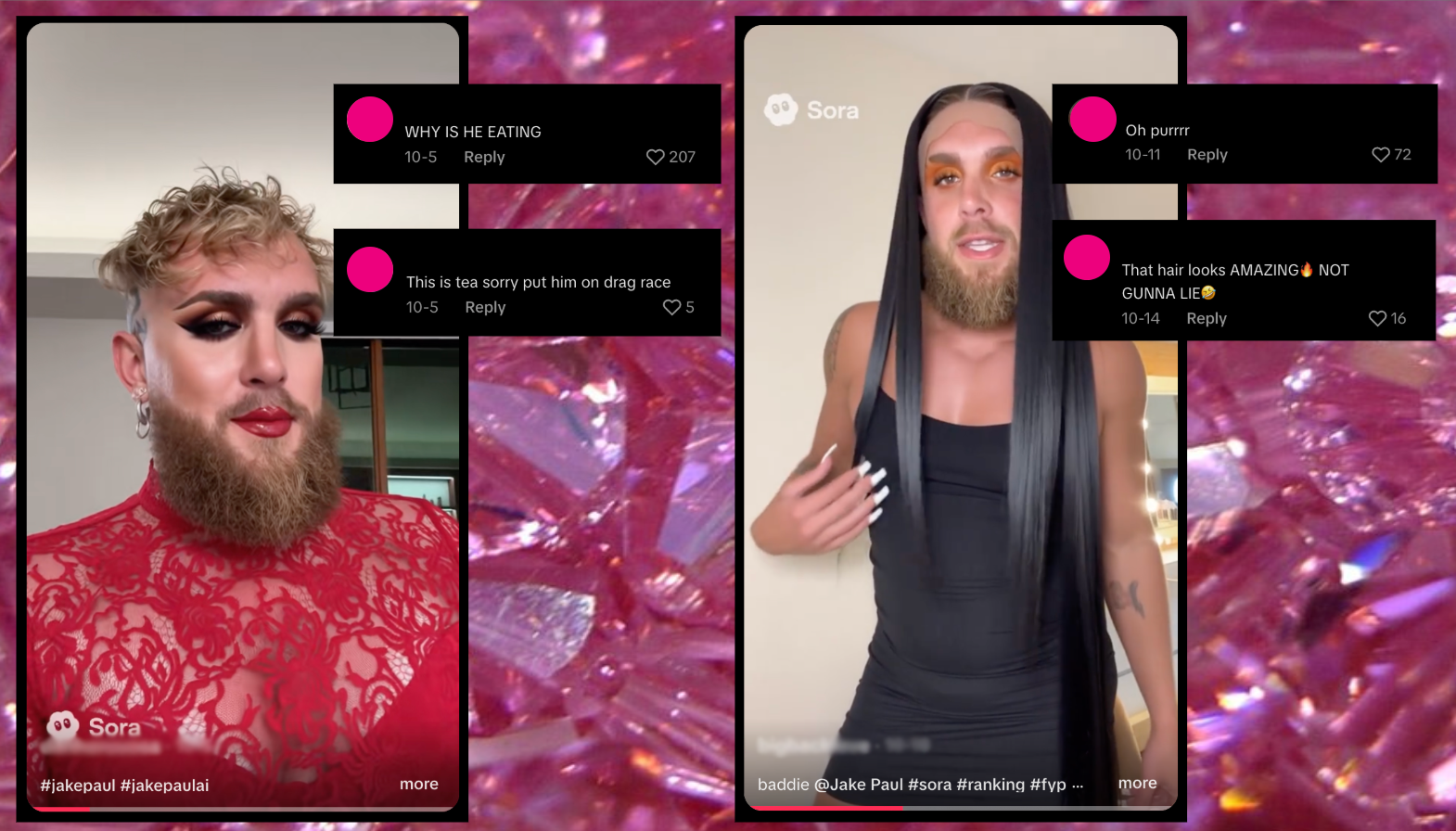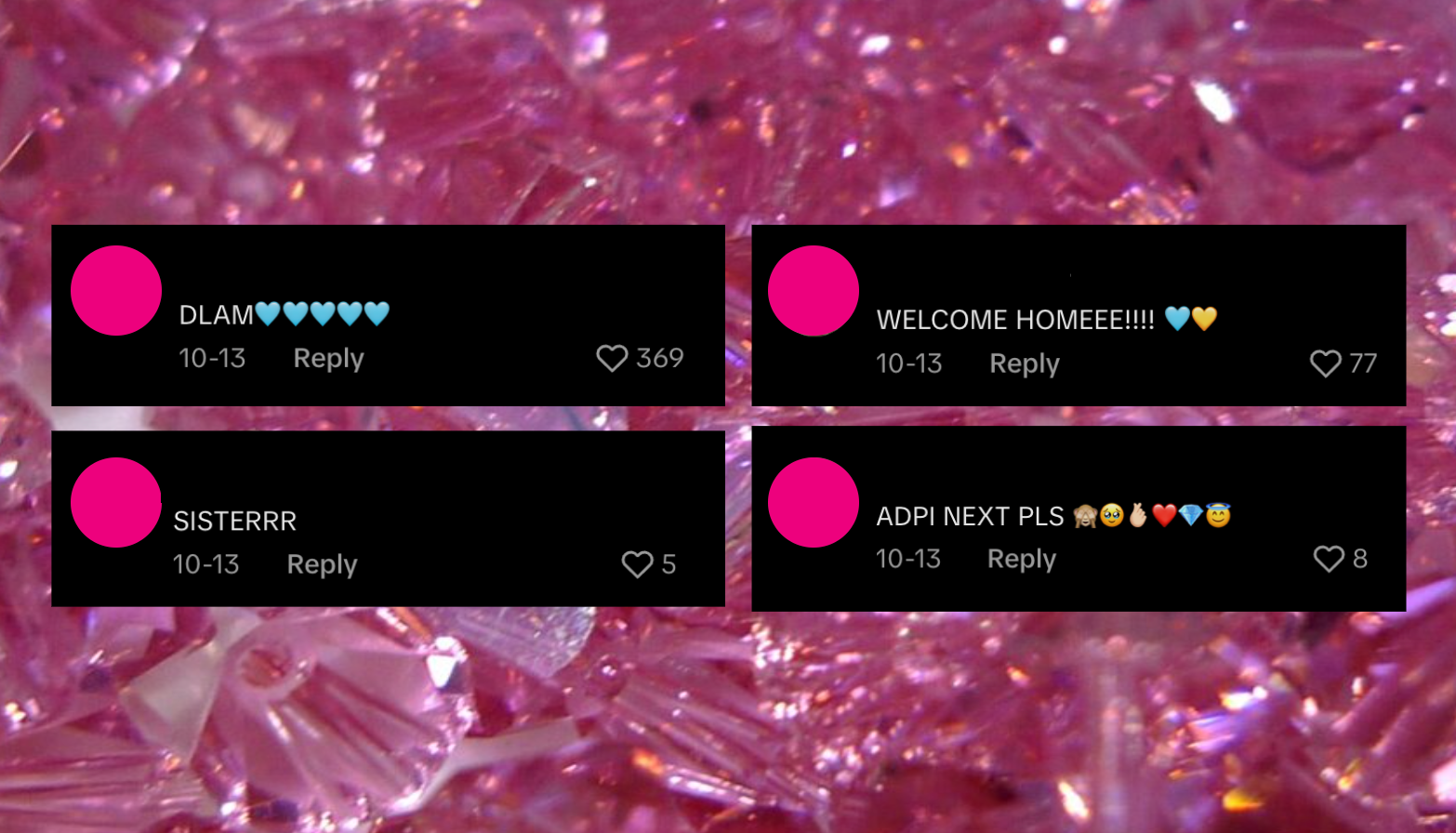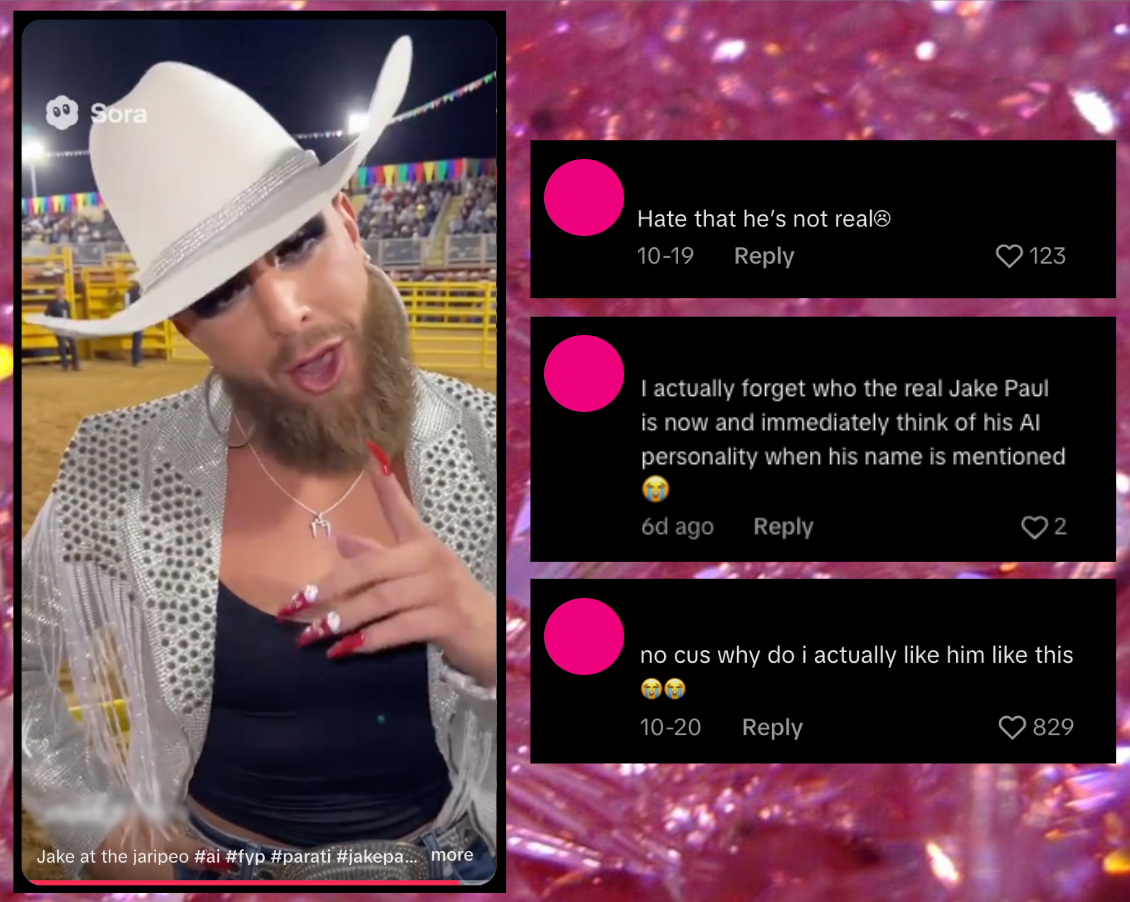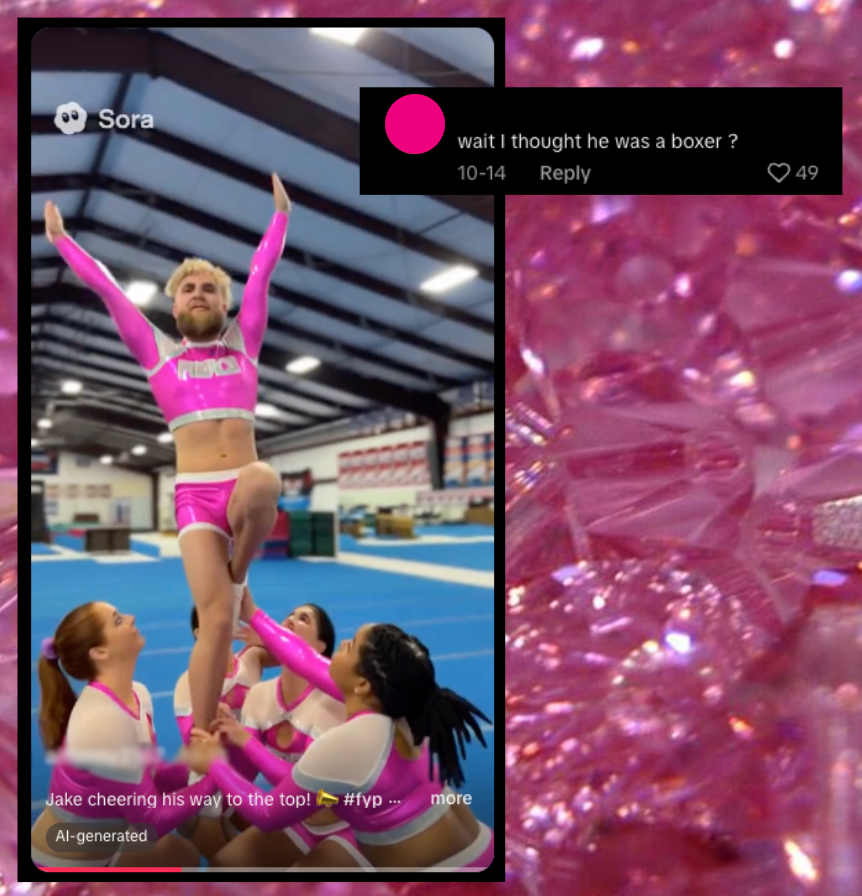Jake Paul PREGNANT?!

Celebrities are foraying into AI name and likeness deals — and users are taking full advantage.
Jake Paul is pregnant. Jake Paul is wearing a full-face of makeup. Here, he speaks Spanish — look, now he’s figure skating!
If you or someone you know has a TikTok account, they almost certainly have seen AI-generated, user-“created” videos of Jake Paul in places he has (probably) never gone before. This new trend stems from a recent name, image, and likeness (NIL) deal between Paul and Sora — a generative AI app owned by OpenAI — for which Paul uploaded his physical likeness as part of the app’s new “cameo” feature, allowing Sora users to create AI-generated videos of Paul based on written prompts. This deal has already been exceptionally profitable for Paul, who allegedly made $57 million in media value in the first six days of having his likeness available on the platform.
Just Sparkle and Sweetness
Various AI-generated videos show Paul’s likeness in increasingly controversial or inflammatory contexts, often in stark contrast to his public “tough guy” persona and UFC career. Here’s Paul as a clumsy, obese man. Here’s Paul, still obese, giving a TED Talk about being “a poopy butt.” Here’s Paul accepting a bid from the Tri-Delta sorority.

These videos point to the inherent risks of selling your physical likeness to a generative AI company and allowing the general public free rein with your image. The public’s tendency to engage in weird and problematic behavior for clicks and clout almost guarantees this kind of user-generated outcome. As such, a strong throughline in many of these user-generated videos is a sort of casually caricaturized fatphobia, homophobia, and anti-Black racism. In fact, the first exposure I had to AI Jake Paul came from a video of Paul vogueing with a Pride flag hanging in the background. Unfamiliar with the trend, I thought I was having a stroke as I watched Paul’s likeness– rocking a cropped tee emblazoned with a rainbow heart and light-wash jeans–dancing and saying, “Yes, the vibes are immaculate, honey, I’m serving rainbow realness. Feeling cute and soft. No tough guy today, just sparkle and sweetness.”

Other videos further this trend of caricaturized, jester-like queer-coding. Here’s Paul, in full beat, wearing a red lace top. Here’s Paul cuddling Ricky Berwick, a disabled content creator, as Paul introduces Berwick as his boyfriend. Here’s Paul pregnant, buying baby clothes, and expressing excitement over “the world seeing a pregnant man.” All this is fine and dandy and not at all surprising for anyone who spends time on the Internet, but like all generative AI, this trend uses a shitload of water and electricity to portray Jake Paul as pregnant with the baby “6-7,” as a Black woman, or as a visibly queer man.
The Internet’s knee-jerk reaction to emerging trends is frequently anti-queer, anti-Black, and generally unsavory. This is the result of the broader Internet “pool” we all swim in, where harmful social tropes and stereotypes are readily available and frequently utilized. It’s not a coincidence that the emergence of AI Jake Paul, with all of its anti-queer and anti-Black coding, coincided with other recent forms of AI blackface on TikTok. Earlier this month, numerous AI-generated videos showing Black people lamenting the pause on SNAP benefits made the rounds on the platform, echoing tired and historically racist tropes that suggest Black communities misuse welfare. AI Jake Paul originates from the same phenomenon — minstrel shows persist, only now they’re AI.
The comments on AI Jake Paul videos suggest that viewers understand these to be derogatory towards queer and Black communities. Comments like “now show the AI version,” “What is unc doing 😭 it’s not ai bro 😭 💔 🙏" suggest that to many users, these videos are just much more involved (and resource-intensive) ways to derogatorily call someone “gay” or portray them as Black.
Oh purrrr
To be clear, regardless of the original and possibly homophobic or anti-Black intentions of these videos’ creators, one has to admit that queer AI Jake Paul looks good, a fact not missed by various commenters (many of them appearing to be women).

Instead, while the original intentions behind these videos may have been problematic, various commenters either ignored the original intent or did not seem to pick up on it, instead appearing to embrace Paul’s new AI-generated queer persona. On the previously mentioned video of Paul opening a membership bid from the Tri-Delta sorority, numerous commenters, many of them likely current or former members of the sorority, responded “DLAM” (the sorority’s slogan, short for “Delta Love and Mine”) and “WELCOME HOMEEE!!!! 🩵💛” — welcoming AI Paul to the sorority. While the video creator’s initial intent may have been to highlight what they see as the “absurdity” of a biological man being granted access to female spaces, actual members of the sorority appear to have accepted queer, AI-generated Paul to their organization.

One gets the sense that artificially placing a hyper-masculine, borderline red-pill adjacent man (who engages in similar styles of performative masculinity discussed in an earlier WXQT article) in queer, feminine, or Black spaces, may be an attempt at humanizing these communities to people who otherwise don’t seem to give a shit about them, even if the original intent of the video was derogatory. By portraying Paul — who has been accused of sexual misconduct twice, been filmed saying the n-word, and endorsed Donald Trump for president in 2024 — as queer or Black, users are artificially placing him in the shoes of these communities and virtually introducing him to their lived experiences. However, if not engaged critically or satirically, then at face value, this trend still runs the risk of being a regurgitation of anti-queer and misogynoir tropes. At the end of the day, AI “blackface” is still blackface.
Why do I like AI Jake Paul better? 😭
Beyond the desired financial impact of AI Jake Paul, the trend is likely to improve Paul’s public image, and in some cases, seemingly already has. Seeing AI Jake Paul in specific contexts appears to have made him more sympathetic to some TikTok users, even though these users are well aware that this is not the real Jake Paul. On an AI Jake Paul video depicting him as a Hispanic woman at a jaripeo (a Mexican rodeo), commenters, many of whom appear to be Latine themselves, said they found AI Jake Paul more likable than IRL Jake Paul.

I found similar comments on a video of AI Jake Paul putting on makeup — “the AI Jake has made me like Jake and then I remember he actually sucks," “AI Jake Paul might be my favorite celebrity 😭” and “This would actually make him likable 💔”. One makeup company even asked, “how do we give a PR package to Jake Paul AI(?)” This simultaneously suggests two things. First, allowing users to place a toxic celebrity’s likeness into any digital context they desire can potentially make this celebrity more sympathetic to broader audiences without them having to do anything IRL. Second, people are struggling to square the two different personas portrayed in these videos — IRL Jake Paul and his AI persona — or, as demonstrated by the makeup company’s comment, are beginning to consider these two personas as entirely separate entities. IRL Jake Paul is a UFC fighter. AI Jake Paul is Hispanic, queer, Black, or pregnant. He can be just like you, fr.
Wait, I thought he was a boxer?
To be clear, not all viewers appear to immediately realize that these are AI-generated videos. Even I, at first, did a double-take as queer AI Jake Paul danced across my phone screen.

This is obviously the largest reputational risk posed by AI cameos — that participating individuals, unlike previous iterations of NIL deals, no longer have control over what their likenesses do, say, or wear. Invoking “late stage capitalism” in this context seems obvious enough to almost be trite, but I think it’s warranted in this context. The $57 million in media value that Paul’s AI likeness generated is essentially an exchange of his reputation for cash.
Generative AI celebrity cameos are just another example of the escalating extractive practices running rampant in our society that is monetizing every other aspect of our lives, our attention, our time, our data, and our sanity. AI Jake Paul videos are made by AI models trained on stolen information and powered by data centers that are increasing electricity costs for nearby residents — including this author. Further, any TikTok trend that captures the attention of its users (once again, including this author, don’t get mad at me) more than the platform already does is inherently extractive. Any trend that keeps users on the platform longer is only an advancement in the platform’s already existing business model, wherein users volunteer their time, attention, and data to a platform that then sells it off.
For what it’s worth, in response to the onslaught of AI Jake Paul slop, IRL Jake Paul posted a TikTok of his own where he sarcastically claimed to be pursuing lawsuits against those who have used his likeness in unsavory ways. While doing so, however, he purposefully invokes many of these videos by applying makeup during his diatribe — so maybe he’s learned a thing or two from his queer AI counterpart after all.
Huge thanks to Hampton for thoughtful edits on earlier drafts. All mistakes, however, are my own.
Thanks to Wikimedia Commons for portions of the title image — all changes and adaptations come from the author and I alone.
